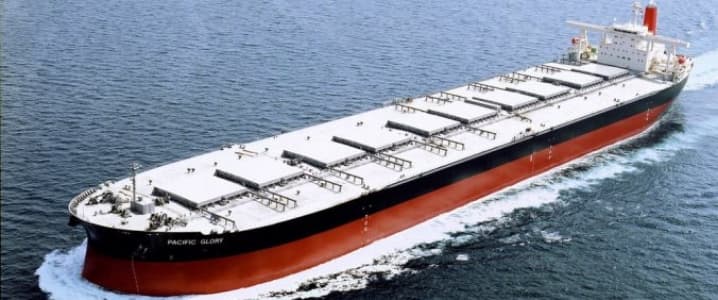“Over the secular horizon, Oil prices are likely to remain low,” said the PIMCO’s Global Advisory Board (GAB), while assessing global economic trends, according to the PIMCO website.
The GAB believes that the major factors that can keep prices down over the long-term are twofold: consistently high production by Saudi Arabia, and on the demand side, the board expects new technologies and a move towards green fuels to “slow oil consumption somewhat”.
The GAB members included Dr. Ben Bernanke, former Chairman of the Federal Reserve, Dr. Gordon Brown, former UK Prime Minister and former Chancellor of the Exchequer, and Ng Kok Song, former Chief Investment Officer of the Government of Singapore Investment Corporation.
A few of the points mentioned by the GAB don’t add up—let’s analyze both the demand and the supply situation.
High oil production by Saudi Arabia
Saudi Arabian oil production has gone up only marginally in the last four years, as seen in the chart below. However, what Saudi Arabia has done is that they no longer operate as the swing producer of the world.
(Click to enlarge)
“I think managing in the traditional way that we tried in the past may never come again,” said Khalid al-Falih, the Saudi Arabian oil minister. “Certainly we will not go with certain price targets,” reports The New York Times.
The Saudi’s have realized that the shale oil drillers can’t wait for prices to rise before increasing production. Their financial position dictates that they continue high production to meet their liabilities.
Similarly, all the other major oil producing nations are also not in a position to reduce production, as most are struggling to fund their fiscal budgets. Related: Electric Vehicles Won’t Kill Off Oil Demand Anytime Soon
Hence, Saudi Arabia has adopted the new philosophy to continue pumping oil, allowing the market to determine the fair price, which is the right thing to do for the long-term.
This means that it is not only Saudi Arabia that is keeping production high—all major oil producers are pumping as much as they can.
Regime change in the Middle East
Since the Arab spring, most Arab nations have taken a practical approach to falling oil prices. They have initiated corrective measures to avoid another round of unrest.
The ‘Vision 2030’ plan announced by Saudi Arabia is a big step in the right direction, and it is not the only country to do so. Oman and the United Arab Emirates have also chalked out plans to reduce dependence on oil by diversifying their economy.
"In the UAE we are diversifying the sources of energy…and also we are diversifying the sources of income. We are developing our economy, and year on year we are seeing that the non-oil economy's contribution is growing," Suhail Bin Mohammed Al Mazrouei, energy minister of the United Arab Emirates (UAE) told CNBC.
Khalid Al Rumaihi, chief executive of Bahrain's Economic Development Board, considered the current oil crisis as an opportunity for the gulf nations to transform.
"In my mind, this period is a blessing in disguise. I think it was Mr (Winston) Churchill who said 'never let a good crisis go to waste'. I think it is an unprecedented opportunity for reform," said Khalid Al Rumaihi. Related: ISIS Hits Largest Oil Field in Kirkuk, Kills Five
Though these steps are long-term in nature, they show that the rulers have learned their lesson well and are taking the necessary steps to reduce the possibilities of another Arab Spring in the near future.
Consumption remains strong
Various reports suggest that crude oil demand will remain strong till around 2030. Aside from the Organisation for Economic Cooperation and Development (OECD), whose demand has peaked, the non-OECD demand continues to remain strong.
“We still believe that there could be one more super-cycle in oil before demand peaks in 2030-35,” investment advisory firm Sanford C. Bernstein & Co. said in its note. “Assuming tight oil peaks out before demand does, it could result in another period of supply tightness as OPEC becomes a dominant force in supply, just as it did in the 1970s,” reports Bloomberg.
So in order to survive in the short-term, oil companies have shelved billions of dollars of oil projects, which will lead to a shortage of oil in the future, when demand will continue to rise and the supply of oil will not be enough to meet the demand.
We are likely to get a bout of high oil prices a few years from now, but until then, the markets will continue to remain range bound.
By Rakesh Upadhyay For Oilprice.com
More Top Reads From Oilprice.com:
- Why Goldman Sachs Remains Bullish On Russian Oil
- Oil Flirts With Bear Market As Short Positions Surge Most In 10 Years Time
- Oil Prices Fall Below $40 As OPEC Ramps Up Output



















